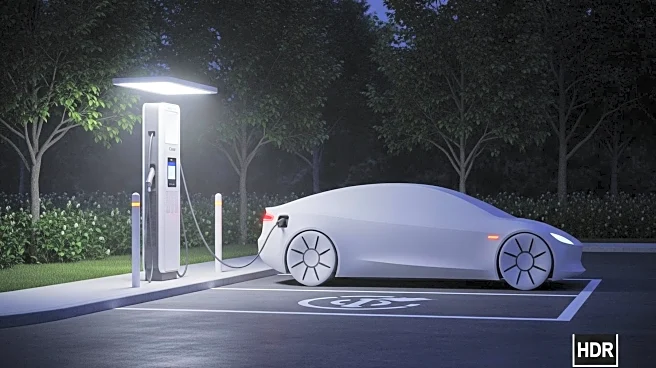What is the story about?
What's Happening?
Rivian Automotive has lowered its annual deliveries forecast due to the expiration of federal tax credits, which has created uncertainty in the electric vehicle industry. The company adjusted its forecast to between 41,500 and 43,500 vehicles, slightly down from its previous estimate. This change comes despite a 32% increase in deliveries, as Rivian and other EV manufacturers face challenges following the removal of a $7,500 tax credit on leasing. The expiration of these credits, along with high tariffs on auto parts, has increased manufacturing costs and affected profit margins.
Why It's Important?
The reduction in Rivian's forecast highlights the broader impact of policy changes on the electric vehicle industry. The expiration of tax credits could lead to decreased consumer demand, affecting sales and profitability for EV manufacturers. Additionally, increased tariffs on auto parts may force companies to reevaluate their supply chains and investment strategies. These factors could slow the growth of the EV market, impacting efforts to transition to sustainable transportation solutions.
What's Next?
Rivian is expected to release its third-quarter financial results on November 4, which will provide further insights into its performance and future strategies. The company may need to explore new ways to maintain profitability, such as increasing domestic production or developing more affordable models. Industry stakeholders will be watching closely to see how Rivian and other manufacturers adapt to these challenges.
Beyond the Headlines
The situation underscores the importance of government incentives in promoting sustainable technologies. The removal of tax credits raises ethical questions about the support for green initiatives and the role of policy in driving innovation. Long-term shifts in consumer behavior and industry practices may emerge as companies navigate these changes.















